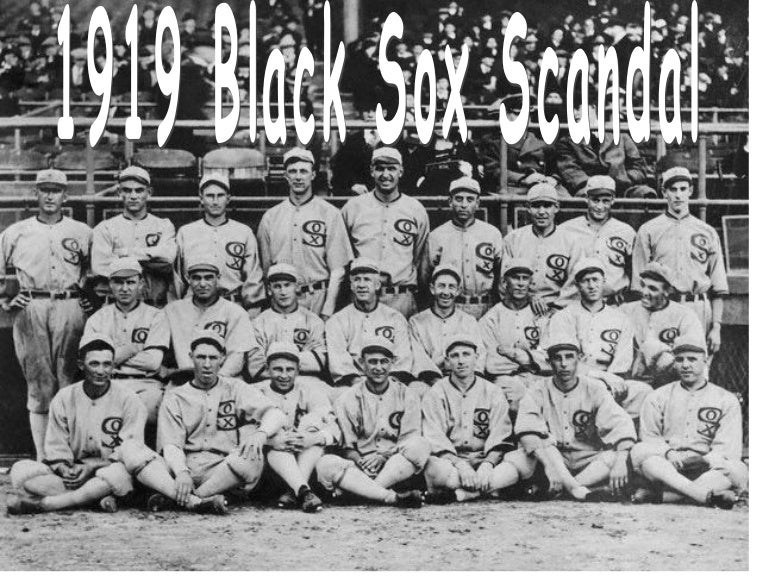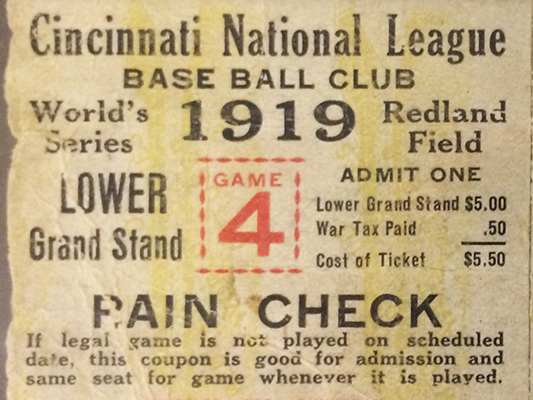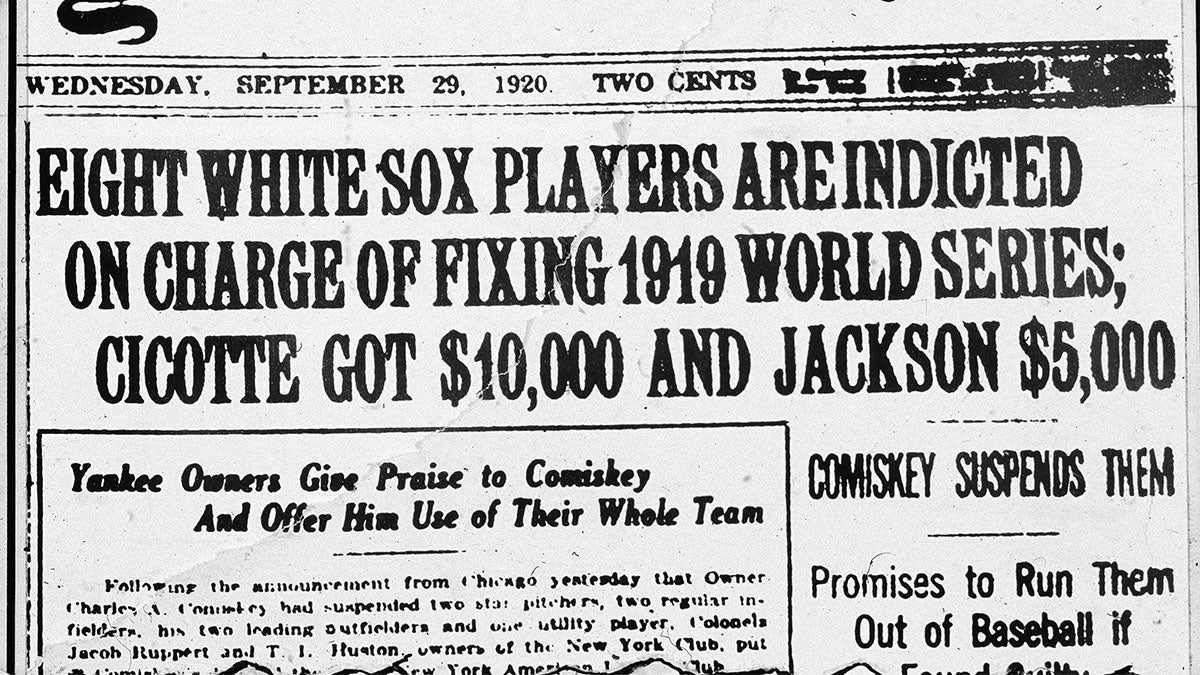Arnold Rothstein And The 1919 World Series
- Arnold Rothstein And The 1919 World Series Winner
- Arnold Rothstein And The 1919 World Series Stats
- Arnold Rothstein And The 1919 World Series Game 6
- Arnold Rothstein And The 1919 World Series Facts
See full list on history.com. Jun 01, 2016 The name of gangster and gambler Arnold Rothstein is probably most familiar to Americans as the man who fixed the 1919 World Series. F Scott Fitzgerald – who had met Rothstein – fictionalized him as Meyer Wolfsheim, a Jewish gambler from New York, who fixed the World Series – in The Great Gatsby. Pietrusza's biography of Arnold Rothstein entitled Rothstein: The Life, Times & Murder of the Criminal Genius Who Fixed the 1919 World Series was a finalist for the 2003 Edgar Award. Pietrusza's Judge and Jury, his biography of baseball's first commissioner, Kenesaw Mountain Landis, received the 1998 CASEY Award. Arnold Rothstein in 1920: The high-stakes New York gambler behind the 1919 World Series fix. Abe 'The Little Champ' Attell, Rothstein's henchman and sometimes bodyguard, former featherwight champion of the world. See full list on hbowatch.com.
To untangle what A.R. tangled we must start at the beginning, with fairly incontrovertibleLeague Cincinnati Reds. The Sox were a talented but
unhappy and faction-ridden ball club. Money played a part in their unhappiness.
Some players felt underpaid and hated owner Charles Comiskey for it. But on the
Sox were men who would have stolen even if had been millionaires.
Not one, but two sets of gamblers, financed the fix. The players stretched out their greedy
retaliated by winning Game Three against Cincinnati, bankrupting one gambling clique
ultimately lost the Series to the Reds.
It was not the perfect crime. Perfect crimes require discretion and intelligence. In
1919, so many players and gamblers flaunted their actions that suspicions
surfaced almost immediately. But nearly a year passed before baseball and civil
Weaver, and utility man Fred McMullin and a ragtag assortment of gamblers stood
trial in Chicago. After several signed confessions disappeared mysteriously, all won
A.R. did very little in direct fashion, and until he caught a bullet in his gut, he never
paid for his actions. If things happened--illegal things, immoral things, violent
things--and he profited from them . . . well that was just how things turned out. No
one could ever prove anything. If he shot a cop--or even three--he walked, and the
authorities found himself indicted. If the feds indicted A.R. for questionable
activities on Wall Street, the case conveniently never came to trial. If A.R. fixed a
World Series . . .
“The world in which Arnold Rothstein lived is now long gone. Far more deserving men than he have been forgotten. But not Rothstein. His memory is disinterred each autumn when World Series time rolls around. He is the legendary figure, the ‘man who fixed the world series’. He did not fix the Series. The Series, however, could not have been fixed had there been no Arnold Rothstein. These statements are not contradictory, but complementary. Rothstein’s name, his reputation, and his reputed wealth were all used to influence the crooked baseball players. But Rothstein, knowing this, kept apart from the actual fix. He just let it happen.”
Leo Katcher, The Big Bankroll: The Life and Times of Arnold Rothstein
Without the 1919 World Series fix, Rothstein would probably have faded away into history and been forgotten today. Whether he fixed the Series, though, is a great topic for debate. There is a great deal of evidence for and against Rothstein being involved. Daniel A. Nathan, in Saying It’s So: A Cultural History of the Black Sox Scandal says, “It is now generally agreed upon that Arnold Rothstein…did not fix the 1919 World Series… Nevertheless, like virtually everyone associated with the affair, Rothstein was no innocent. He knew of the fix early on and profited greatly from it.” Because of the scandal, the White Sox were nicknamed the “Black Sox,” and that name has stuck in association with the 1919 World Series team.

The 1919 World Series starred many players, but eight names have become infamous: pitcher Eddie Cicotte, center fielder Oscar “Happy” Felsch, first baseman Arnold “Chick” Gandil, outfielder “Shoeless” Joe Jackson, utility infielder Fred McMullin, shortstop Charles “Swede” Risberg, third baseman George “Buck” Weaver, and pitcher Claude “Lefty” Williams. For participating in the fix, all eight players were eventually banned from baseball.
The motive behind fixing the 1919 World Series was entirely monetary. Charles Comiskey, owner of the White Sox, believed in paying his players the lowest price possible. At that time in baseball, a reserve clause was in effect; if a player left Comiskey and the White Sox, he would not be able to play elsewhere. Katcher states, “Baseball’s reserve clause, which bound a player to one team so long as that team desired his services, was in effect…A ballplayer had no freedom of choice, could play only for the team with which he had originally signed. Comiskey…used his power to keep wages low. Some of his players were paid less than $4,500, other were paid the big league minimum of $2,500.”
The White Sox players were unhappy with their meager wages, and decided to do something about it. Pitcher Eddie Cicotte was “the ring leader, as he later admitted…Chick Gandil, the first baseman, has written that he connived with Cicotte from the start.” Together, Cicotte and Gandil sought out a gambler for help: “[t]heir choice was Joseph (“Sport”) Sullivan, of Boston. Sullivan was the biggest gambler in New England. Cicotte laid the proposition on the line for Sullivan. The White Sox would deliberately lose to Cincinnati…if Sullivan would pay $10,000 to each of the players who would be involved in the plot…[Cicotte’s] price for throwing the Series was set…at $100,000.”

According to testimony at the Cook County Grand Jury trial, during which all eight White Sox players were indicted, William Maharg said that he and former baseball player Bill Burns “made an appointment with Rothstein. We met Rothstein by appointment in the Astor and the put the proposition [of the fix] to him. He declined to get into it. He said he did not think such a frame-up would be possible” (Katcher 142). For a while Maharg was disappointed until he received a telegram: “I returned to Philadelphia, thinking everything was off until I received the following wire from Bill Burns: – ‘Arnold R. has gone through with everything. Got eight [players] in.'”
During the court trial, and after, private detectives were hired to found out the truth about the 1919 World Series. “In September, 1920,” Katcher states, “[president of the American League, Ban] Johnson announced the results of the investigation. He stated categorically that the Sereies had been deliberately lost by the White Sox and added: ‘The man behind the fixing of the Series was Arnold Rothstein.’” Almost immediately, Rothstein issued a denial: “‘There is not a word of truth in the report that I had anything to do with the World Series of last fall. I do not know if it was fixed…My only connection was to refuse to do business with some men who said they could fix it…I intend to sue Ban Johnson for libel’” though Rothstein never filed charges on Johnson. Later, Rothstein would blame the entire fix on boxer Abe Attell.
In a statement to the press that contained part of his Grand Jury testimony, Rothstein said, “‘I’ve come here to vindicate myself. If I wasn’t sure I was going to be vindicated, I would have stayed home…The whole thing started when Attell and some other cheap gamblers decided to frame the Series and make a killing. The world knows that I was asked in on the deal and my friends know that I turned it down flat. I don’t doubt that Attell used my name to put it over… But I wasn’t in on it, wouldn’t have gone into it under any circumstances and didn’t bet a cent on the Series after I found out what was under way.”
The odd thing – or perhaps not – about the legal battle surrounding the World Series fix is that “[a]ll the records and minutes of the Grand Jury disappeared. So, too, did the signed confessions of Cicotte, Williams and Jackson… The state, virtually all of its evidence gone, sought to get the players to repeat their confession on the stand. This they refused to do, citing the Fifth Amendment.” Eventually, the judge had no choice but to dismiss the case. Katcher states, “Thus, on the official record and on the basis of [State Attorney Maclay] Hoyne’s statement, Rothstein was never involved in in the fixing of the Series. Also, on the official record, it was never proved that the Series had been fixed.” All eight White Sox playerss were forever banned from the game of baseball. Despite all his denials, though, Katcher notes that “while Rothstein won the Series, he won a small sum. He always maintained it was less than $100,000. It actually was about $350,000. It could have been much – very much – more. It wasn’t because Rothstein chicken out. A World Series fix was too good to be true – even if it was true.”
Arnold Rothstein And The 1919 World Series Winner
Retirement
In 1921, Rothstein decided to “retire.” He made the announcement via newspaper: “From now on, I shall devote most of my attention to my racing stables and my real estate business. It is not pleasant to be, what some call, a ‘social outcast.'” During this time, Rothstein became involved in bootlegging during the early years of Prohibition, particularly with Waxey Gordon of Philadelphia, and later expanded, along with Lucky Luciano, into the drug trade, namely heroin. His influence on Meyer Lansky and Lucky Luciano was critical in their formations as some of the biggest American gangsters.
Rothstein remained a cutthroat businessman who exercised his power judiciously. He became the Jewish kingpin and can be called the big businessman who founded and funded American organized crime, particularly in New York. Within a few years of Prohibition beginning, however, Rothstein grew bored with it and moved in the illegal trading of heroin, as seen in the season 3 ending of “Boardwalk Empire.”
What Rothstein never stoppped doing, though, was gambling. Eventually, it killed him. Rothstein died on November 4, 1928. Katcher says, ‘[T]he desk sergeant at the old West Forty-seventh Street station house in New York…received a call from a police box informing him of a shooting… ‘Man reported shot in Park Central Hotel, Seventh Avenue and Fifty-sixth Street…Arnold Rothstein, male, 46 years…gunshot wound in abdomen.'” He had been leaving a card game. The shooter was never found.
Arnold Rothstein’s Legacy
Rothstein, a legend in the world of organized crime, an amazing gambler, one of the key parts of the bootlegging and drug trade in the 1920s, could very well have disappeared forever without the infamous 1919 World Series fix. Of course, he is mentioned in F. Scott Fitzgerald’s novel The Great Gatsby, but as the shady Jewish character Meyer Wolfsheim. Fitzgerald had no qualms pinning the fix on Wolfsheim and even hinted strongly that Wolfsheim had a major influence on Gatsby’s wealth and business dealings. Rothstein-esque character have appeared in “The Godfather: Part II,” Hyman Roth. F. Murray Abraham played Rothstein in “Mobsters;” Michael Lerner was Rothstein in the 1988 movie “Eight Men Out”.
Arnold Rothstein And The 1919 World Series Stats

While these characters are Rothstein in disguise, we have HBO’s “Boardwalk Empire” to thank for truly reviving him. Michael Stuhlbarg is Rothstein, from his mannerisms to soft speech to always wearing a bow tie, a signature style of Rothstein’s. “Boardwalk Empire” also dances carefully around the issue of the World Series fix; it is mentioned heavily in season 1, but they are never so bold as to say “Yes, he fixed it” or “No, Rothstein was innocent.” The viewers are allowed to make up their own minds on that. For the most part, the information surrounding Rothstein’s possible fix is handled incredibly well and remains factual. Sure, some elements are dramatized, but the character of Rothstein is expertly preserved and presented by Michael Stuhlbarg. Thanks to “Boardwalk Empire,” Rothstein and his legacy will live on and on as a myth and a man.

Arnold Rothstein And The 1919 World Series Game 6
So, did he – or didn’t he – fix the series? I’d love to hear what you think. Maybe we’ll find out on Boardwalk Empire in future seasons.
Arnold Rothstein And The 1919 World Series Facts
[poll id=”28″]